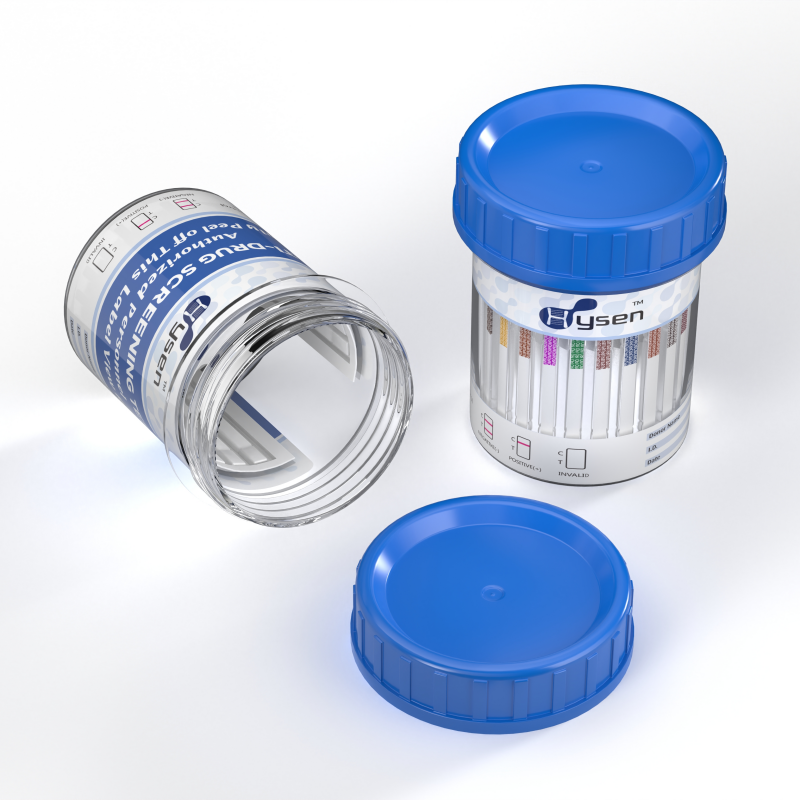Understanding CLIA Waived and Non-Waived Tests
The Clinical Laboratory Improvement Amendments (CLIA) are critical to ensuring the accuracy and reliability of laboratory testing in the United States. These amendments categorize tests into two primary types: waived and non-waived tests. The distinction impacts the operational procedures, regulatory requirements, and overall functionality of laboratories, including those involved in wholesale and custom drug testing services.
CLIA Waived Tests: Simplicity and Accessibility
Waived tests, defined by the CLIA, refer to simple laboratory examinations that carry a low risk of erroneous results. They are often utilized in point-of-care settings and require minimal technical expertise, making them accessible for a variety of healthcare providers. Laboratories that handle only waived tests must possess a CLIA certificate and adhere to the manufacturer's instructions, with fewer regulatory burdens. This category often appeals to suppliers seeking streamlined processes with fewer regulatory constraints.
CLIA Non-Waived Tests: Complexity and Compliance
Non-waived tests are categorized into moderate and high complexity levels. These tests require more stringent oversight, including regular inspections and adherence to quality control measures outlined by CLIA standards. Laboratories offering non-waived tests must ensure compliance with proficiency testing, quality assessments, and detailed personnel requirements. The complexity of these tests often demands specialized training and a more substantial investment in laboratory infrastructure, impacting custom drug testing services that offer sophisticated analyses.
Complexity Levels Defined by CLIA
Assessment Criteria for Complexity
The criteria used by the FDA to classify test complexity include the knowledge needed to perform the test, the experience of the testing personnel, the level of risk involved, and the technological sophistication required. The final score from these assessments dictates whether a test falls under the waived, moderate, or high complexity categories. This classification helps wholesale suppliers tailor their offerings based on laboratory capabilities and client needs.
Implications for Test Providers
For test providers and suppliers, understanding these complexity levels is crucial. Waived tests offer opportunities for broad distribution due to their ease of use, while non-waived tests may present unique market opportunities by offering specialized, high-value testing services that require advanced lab capabilities.
Regulatory Bodies and Their Roles
Oversight by the FDA and CMS
The Food and Drug Administration (FDA) and the Centers for Medicare & Medicaid Services (CMS) collaborate to oversee the CLIA program. The FDA categorizes test complexity during the pre-market approval process, while CMS manages the ongoing regulation of laboratories to ensure compliance with CLIA standards. These regulatory bodies serve as key partners for suppliers and custom testing providers in navigating the compliance landscape.
Impact on Laboratories and Suppliers
- Simplified procedures for waived tests align with the strategic goals of wholesale suppliers targeting broad market penetration.
- Compliance requirements for non-waived tests necessitate advanced training and infrastructure, impacting cost structures and operational planning.
Requirements for Waived vs Non-Waived Tests
Documentation and Inspection
Waived tests require basic documentation, focusing on adherence to the manufacturer’s instructions. Non-waived tests involve detailed record-keeping, periodic inspections, and adherence to rigorous quality control standards. These requirements influence the choice between waived and non-waived test systems for laboratories seeking to balance cost and operational efficiency in their custom offerings.
Personnel Qualifications and Training
Personnel qualifications are a major differentiator between waived and non-waived tests. Waived tests require minimal training, while non-waived tests demand personnel with specific qualifications and ongoing training to maintain compliance. This distinction influences hiring practices and staff development strategies within laboratories.
Certification and Accreditation
Types of CLIA Certificates
There are five types of CLIA certificates based on test complexity. Laboratories must obtain the appropriate certificate for the highest level of testing performed. Waived tests require a basic certificate, while non-waived tests may need certificates that undergo more detailed evaluations. This certification process is vital for suppliers and labs striving to maintain market credibility and reliability.
Accreditation Challenges for Non-Waived Testing
Accreditation for non-waived tests involves navigating complex regulatory expectations and periodic reviews. Custom test providers often invest heavily in compliance infrastructure and expertise to meet these standards, ensuring their status as reliable partners within the healthcare ecosystem.
Examples of Waived and Non-Waived Tests
Common Waived Tests
Examples of waived tests include simple procedures like urine pregnancy tests and blood glucose tests. These tests provide rapid results with minimal complexity, making them ideal for point-of-care settings and appealing to wholesale suppliers focusing on large-volume testing solutions.
Common Non-Waived Tests
Non-waived tests encompass more complex diagnostic procedures, such as molecular testing and certain forms of microscopy. These tests require specialized equipment and highly trained personnel, often aligning with custom test offerings that involve intricate analyses and detailed reporting.
Misconceptions and Clarifications
Clarifying CLIA Waived Status
Common misconceptions include confusing CLIA-waived status with terms like FDA-cleared or point-of-care testing. It is essential to understand that these terms do not dictate the test's complexity classification, which is crucial for laboratories to meet regulatory requirements accurately.
The Role of Suppliers in Educating Consumers
Suppliers play a key role in clarifying misconceptions by providing educational resources and detailed information about product categorizations. This transparency builds trust and compliance among consumers and lab partners alike.
Impact on Laboratories and Testing Sites
Operational Differences Between Waived and Non-Waived Testing
Waived tests typically offer a more straightforward operational model, requiring less infrastructure and fewer regulatory hurdles. In contrast, non-waived tests demand significant investment in technology, staff training, and compliance measures, influencing supplier strategies and client engagement.
Strategic Considerations for Testing Sites
Testing sites must align their service offerings with their capabilities and market demands. Understanding the differences between waived and non-waived tests allows for strategic planning to optimize operations, manage costs, and enhance service delivery.
Future Trends and Challenges in CLIA Testing
Evolving Regulations and Market Demands
The landscape of CLIA testing continues to evolve, with regulatory changes and market demands shaping the services offered by laboratories and suppliers. Advances in technology and methodology may influence future categorization and complexity of tests, impacting operational models.
Innovation and Adaptation in Test Offerings
Innovation in testing technology presents both opportunities and challenges. Suppliers and custom test providers must adapt their offerings to meet changing regulations and consumer expectations, ensuring continued relevance and competitiveness in the marketplace.
Hysen Provide Solutions
Hysen offers tailored solutions for navigating the complexities of CLIA testing. Our expert team assists in obtaining the necessary certifications, ensuring compliance with waived and non-waived test standards. With a focus on efficiency and reliability, Hysen supports laboratories and suppliers in enhancing their service offerings and meeting market demands with confidence. Partner with us to streamline your operations, optimize performance, and maintain regulatory compliance across all testing categories.
User hot search: CLIA & 510K Drug Test
Post time: Aug-24-2025
















